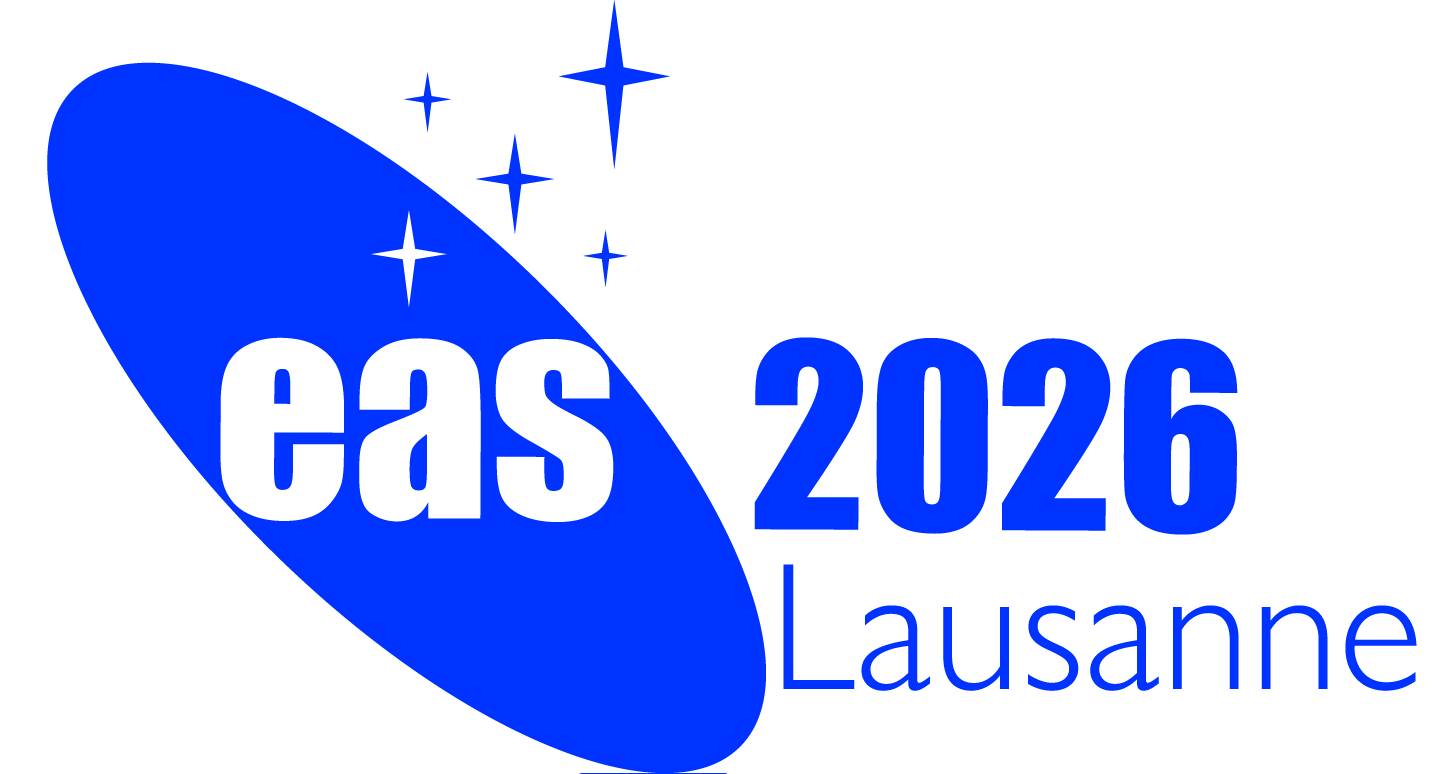
|
European Astronomical Society
|

|
|
|
|
|
|
EAS Job Directory
Find Jobs
| Postdoctoral Position in Astronomical Instrumentation for the PLANETES Project | Closing date: 2025-12-14
Contact: Sylvestre Lacour |
| PLANETES, recently funded by the European Research Council, aims to advance exoplanet science by pushing the limits of the VLT Interferometer (VLTI). | | ▸ more | This instrumental project is directly aligned with the ongoing upgrade of the VLTI infrastructure, including the recent commissioning of GRAVITY+ (https://www.eso.org/public/news/eso2519/). The project addresses technological challenges critical to the next generation of interferometric instruments: development of photonic components for shorter wavelengths; on-sky testing of a new large-format APD detector; and implementation of a novel metrology system to enable microarcsecond astrometry. Over the duration of the project, we plan to validate the concept at the Paranal Observatory in Chile. More details on the project are available here: https://exogravity.obspm.fr/planetes
A postdoctoral position, based at ESO Headquarters in Garching, Germany, is offered to support this project. The successful candidate will focus on the development and validation of the new metrology system while working in close collaboration with the PLANETES team and ESO experts. The postdoctoral researcher will join the research group and report to the PLANETES Project Manager and to the ESO Head of the Office for Science in Garching. The postdoctoral supervisor will be the PLANETES Principal Investigator, Sylvestre Lacour, based at ESO Headquarters in Garching.
The researcher?s main responsibility will be to develop, integrate (at Paranal), and test the new metrology system, including the following tasks:
-Implement a metrology test bench, including installation of an ultra-stable ytterbium laser and integration with long single-mode fibres.
-Demonstrate nanometre-level optical-path measurements and vibration-correction capabilities under realistic conditions.
-Work with VLTI specialists to adapt the bench design into a deployable system for the Paranal Auxiliary Telescopes.
-Specify optical and electronic subsystems and assess operational aspects for long-term deployment.
-Participate in the installation, commissioning, and performance validation of the system at the Paranal Observatory.
-Pursue independent research, preferably in areas related to optical metrology, interferometry, or astronomical instrumentation.
Qualifications and experience
Key competencies and experience include at least three years in the development of instrumentation for optical metrology, long-baseline interferometry, or, more generally, optical instrumentation for astronomy. Required are expertise in operating and handling lasers and optical systems?particularly those related to interferometry?experience in optical assembly, alignment and experimental characterisation, and proficiency in Python for developing analysis and simulation tools for optical instrumentation. Understanding of optical-interferometry principles applied to astronomy is considered an asset.
The successful candidate will hold a completed PhD in astronomy, physics, or optical instrumentation, ideally with a specialisation in optical interferometry, prior to taking up the position. An excellent command of English, both written and spoken, is required.
Contract and benefits
The position is funded for 36 months. The successful candidate will receive a Fellow contract in line with the ESO Fellow stipend rates and benefits as outlined at https://www.eso.org/public/jobs/conditions/fellows/. Please note that a second Fellow contract at ESO through alternative programmes is not foreseen.
Location
The position is based in Garching near Munich, Germany, with duty trips to the Paranal Observatory in Chile.
Application
Applications should include :
-A CV (including personal data, education, skills, and expertise).
-A statement of research interests (maximum two pages).
-A one-page motivation letter titled ?Why I should join the PLANETES project.?
-The names and contact details of three referees, each of whom has agreed to be contacted during the selection process.
Please send the above directly to the project office at planetes.jobs @ sympa.obspm.fr.
Applications must be received by 14 December 2025 midnight. The selection process will begin shortly after the deadline, with interviews expected to take place in January 2026. The starting date is flexible but should be between February and November 2026.
We regard diversity as an asset within a team and welcome applicants with diverse backgrounds and experiences.
For further information, contact: Sylvestre Lacour (sylvestre.lacour @ eso.org).
|
More resources
Links to other job lists
|

